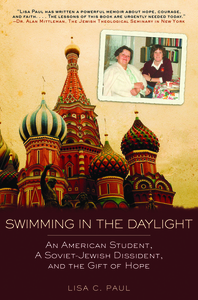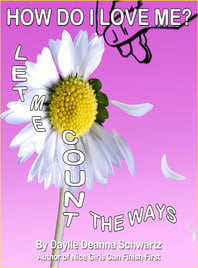Last Friday my post was What, Me Worry? A reader asked for help with dealing with her child’s fears. Since we all get scared of the unknown sometimes, I’m answering here. Kids and adult can both think ahead and imagine the worst-case scenario. Or we just think that something bad will happen, even though there’s no concrete reason to think that. Kids are especially good at that. They worry that something bad will happen to them or some bad creature or other is hiding under the bed and will do something awful to them.
Irrational fears of the unknown are usually MUCH worse than reality.
I used to get those fears too, especially when I was a DoorMat. I’d please and please because I was scared of what would happen if I didn’t. Would the person abandon me? Would I have no friends and be alone? Or worse?—whatever worse was. It took me many years to discover that most of what I was afraid of was unlikely to happen. More importantly, I now understand that most of the scary unknown fears don’t actually elicit bad results.
When you break down fear—dissect it from the inside out—you will discover that you can handle most outcomes.
I think of fear in terms of an artichoke. If you’ve ever seen one, you know it has all those layers of thick leaves. If you keep peeling off the layers, eventually nothing is left. It’s the same with fear. If you keep removing the layers of what scars you, eventually you can see that you can handle most outcomes. You don’t have to like everything that results, but if you can peel away the layers, one and a time, and see you can at least accept that you can cope with the outcome. That diffuses the worry to just preferring it could be different.
Try this: When feeling fear, ask yourself what’s the worst that can happen in this situation? What’s the first thing that scares you? An example from an interaction with one of my clients who was going through something similar to what I did years ago is:
• “I’m scared of what will happen if I don’t do Linda favors when she asks.” What do you think could happen?
• “She might get angry at me?” If she does, what could happen from it?
• “She stop talking to me.” If she does, what could happen from it?
• “I might lose her as a friend.” If you do what’s the worst that could happen?
• “I wouldn’t have her to do things with or to talk to.” You might not like that but could you live with that? Will life go on without your world falling apart?
• “I guess it would. I have other friends. I don’t want to lose Linda but I wouldn’t fall apart if I lose her.”
My client recognized that her intense worry was unfounded and she could cope with what scared her. A key to what she said was using the word “might.” She didn’t actually know if any of it would happen. Linda might accept her not doing the favor and the friendship might go on. That’s why it’s so important to go through the layers of your fear and recognize that even if you don’t like the potential or imagined outcome, you could cope with it. Be honest about whether you can cope. You don’t have to like the outcome but will it stop your life? If you don’t find out, worrying about what might happen could be worse than the real outcome.
Often we realize we can handle anything. If we don’t attempt to do what we fear, we get nowhere.
Another example is a woman who lives in Florida. She always worried about hurricanes, although she’d been through a few and her apartment was never damaged. Every time there was even a mention of hurricanes, she’d get upset. Her husband asked to me counsel her by phone when she was very worked up over a hurricane that might hit her area. She was frantic with what ifs? when I asked what scared her. She blurted out that she’d just made a big pot roast and it was in the freezer and would spoil if she lost her power for days!
We talked it all through. Would she be able to carry on living with a spoiled roast? If her power went off, she’d survive without it since it usually wasn’t off for more than a day or two. If some food spoiled, she’d just do some extra cooking. I kept asking what could possibly happen. Most of it was not that bad. Each time I asked if her life would be okay after, she acknowledged it would. She was able to calm down and not blow the hurricane out of proportion. In the end, the hurricane didn’t even hit in her city. She was grateful to be have been able to put her worry about hurricanes into perspective.
Asking yourself “What’s the worst that could happen?” when you’re worried can keep worrying down.
Kids often live in their imaginations, which makes it harder to help them handle fear of what might happen. I don’t know specifics about the child of the reader who asked the question how to deal with her child’s worry. It can vary. I do advise parents to talk fears out with their kids. Ask them the kind of questions I recommend above, depending on their ages. What exactly are you afraid of? Kids often just say, “I’m afraid,” but don’t really know why. Make them think about it. Dig. What could happen? Reassure them after each answer.
• “There are no bad people who come inside in the night.”
• I’m in the next room.”
• Let’s look under the bed and in the closet together.”
The more you ask yourself, or your kids, questions about what the worries are, the more the worries get put into perspective. Talking it out creates a more realistic picture instead of one that your imagination can conjure eases worries and allows you have a more positive attitude.
Take the self-love challenge and get my book, How Do I Love Me? Let Me Count the Ways for free at http://howdoiloveme.com. And you can post your loving acts HERE to reinforce your intention to love yourself. Read my 31 Days of Self-Love Posts HERE.
Please leave comments under my posts so we can stay connected.

